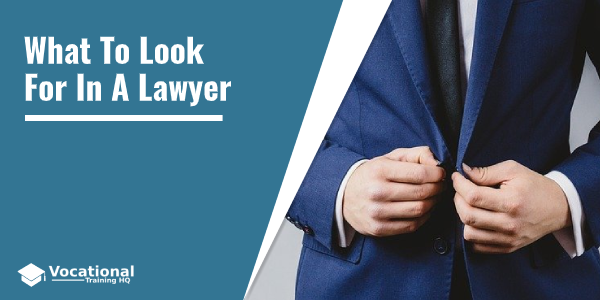A lawyer is someone who represents you in a court of law or helps you settle some cases.
He or she usually has your best interests at heart and always argues your case in court to help you get the best out of any situation.
You may choose to have one lawyer or different lawyers for different scenarios.
Most times, the lawyer who helped you buy a house would not be the same one helping you fight an injury claim for a settlement.
If you’re looking for a lawyer, you need to ascertain that the person you hire will help you the best way they can in your case.
What are the ideal qualities that your lawyer should possess?
Article Table of Contents
Qualities Your Lawyer Should Have
1. Experience
Every attorney was once a new lawyer fresh out of law school.
There are very many new bright, and talented lawyers out there who eventually have successful careers.
Typically when a lawyer fresh out of school handles litigation, their firm gives them a small, simple case.
Most of the time, they are placed under the supervision of a more nuanced and experienced lawyer.
After the experienced attorney ascertains that the fresh lawyer has acquired enough experience, they assign them more complex cases.
Experience allows your attorney to gain some critical skills they wouldn’t have otherwise gotten in law school.
Such skills include choosing a sympathetic jury, negotiating with an insurance adjuster, evaluating a case for a settlement, persuading the judge and jury to rule in favor of the client, and cross-examining witnesses effectively.
Experience gives your attorney knowledge of dealing with various court officers such as judges and other lawyers.
They learn how jurors respond to multiple pieces of evidence and witness statements.
If your case is simple, you can choose a competent lawyer even if they don’t have experience.
However, if you have more to lose or have a complex legal problem, it is in your best interest to have an experienced attorney doing the talking in court.
2. Expertise
Some firms handle almost all legal issues.
They can help you evaluate your business strategy or partnerships, probate your estates, defend shoplifters, and draft contracts.
Sometimes they handle car accident cases and settle claims.
However, whenever a case demands a certain level of expertise, you’ll find that a lawyer may recommend you to another lawyer who has narrowed his niche to that particular legal issue.
A lawyer specializing in one area of expertise has the relevant knowledge and skills that you won’t find in general practice lawyers.
That is why we have different types of lawyers like employment lawyers and corporate lawyers.
3. Reputation And Record
An attorney is judged and evaluated by judges, clients, and their colleagues.
Throughout their careers, lawyers develop a reputation and record.
Before meeting up with a lawyer, do your research about them.
Go online and read reviews on their services.
You can also ask any family members who’ve had any experience with them to tell you how they conduct their operations and if they have an excellent record.
You can also check with your state’s bar association website for any complaints made against them or malpractice accusations.
Ask the previous lawyer you worked with for any recommendations if the case you’re looking to handle is out of their jurisdiction.
4. Comfort And Rapport
Always look for a lawyer who makes you feel comfortable.
An attorney who fosters an open and relaxed relationship with you will allow you to reveal all and any relevant information about the case.
A lawyer can’t fully help you if they didn’t know any pertinent information.
You should also ensure that the lawyer you choose is someone you like.
Chances are, if the case goes to court, you will be spending a lot of time together preparing materials for the case.
Therefore, you don’t want to find yourself spending a lot of time with someone you dislike.
Your lawyer should foster good communication, understanding, and respect.
They should fully understand your goals and needs without any judgment.
When choosing an employment lawyer, don’t go for the same one as your employer’s as it will lead to a conflict of interest.
They will also have your employer’s interests at heart and not yours.
5. Honesty And Integrity
You’ve probably heard the lawyer joke that says lawyers are dishonest individuals.
While this might be true for some, others strive to live and do right by their clients.
Your ideal lawyers should be transparent, honest, and have integrity.
An excellent way to ascertain that you have an honest lawyer is to check their lawyer fee structure.
Always make sure to countercheck with others if you’re getting a fair price for your case.
Generally, attorneys will advertise that they charge low flat fees.
Confirm with your attorney about their fees and other additional charges such as court filing fees or the cost of printings to avoid unwarranted surprises and surcharges during the case proceedings.
Finding The Right Attorney
There are various steps to take to find the best lawyer for your case.
Competency and honesty in a lawyer are just the first steps towards resolving your legal problem.
Ensure that your lawyer is always available to handle your case, communicates with you about the ongoings, and is someone you trust.
